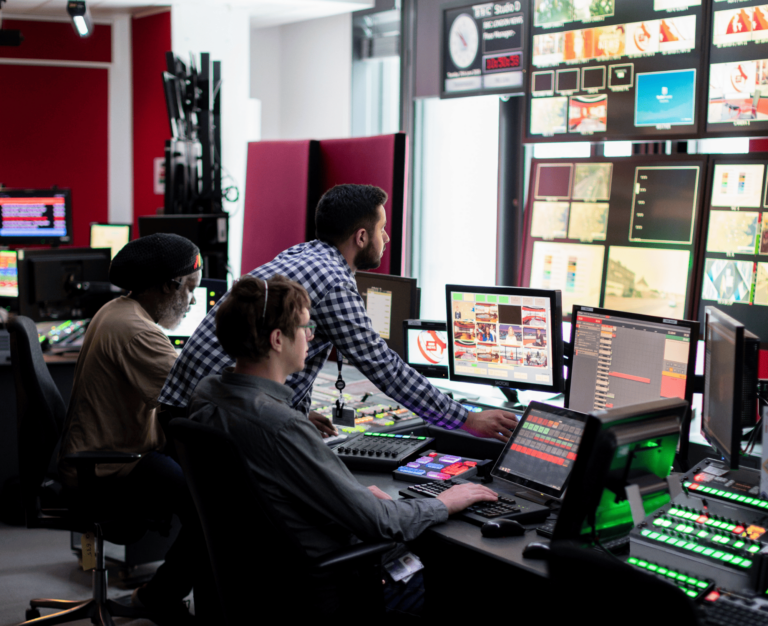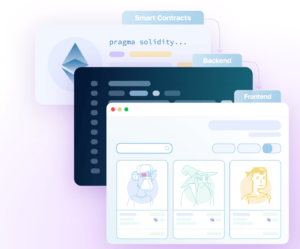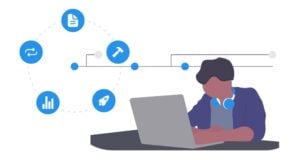As technology takes on an ever-expanding role in day-to-day life for people of all backgrounds and ages, conversations around it have become fully mainstream. With so many people all over the planet increasingly dependent on their smartphones and the apps that make them powerful, formerly niche terminology is now part of daily conversations.
Concepts like beta testing, security patches, or the need to debug software are no longer terms belonging to an alien language spoken only by computer science experts. Heck, you may even hear your dad use them.
But as the most fundamental inputs of our modern world’s software systems enter the zeitgeist, the nuances that distinguish them are often lost. These days software engineers tend to be easily confused with computer programmers and software developers.
All 3 roles have a decent amount of crossover in their job functions, so it’s an excusable mistake, but a mistake nonetheless. So what are the key differences? We’re glad you asked, and we’ve got you covered. Read on to dissect what makes these roles distinct so you can up your tech-talk game and get a little deeper into the exploding tech industry.
What We’ll Cover
We’re going to zoom in and look at the roles of Software Programmer, Software Developer, and Software Engineer individually. For each, we’ll highlight:
- What they actually do in a software environment
- The technical skills and soft skills most important to their jobs
- What positions they’re often suited for in the job market
- Some examples of earnings potential
Then we’ll pull them all together into a concise comparison so we can gain a complete grasp on what connects and separates these professions. Let’s jump in:
Table of Contents
Programmer vs. Developer vs. Engineer

Roles, Not Job Functions
Something to keep in mind as we analyze the distinctions between ‘software engineer’ vs. ‘programmer’ vs. ‘software developer’, is that these are not categorized as job titles or job responsibilities—at least not fundamentally, which is key to our understanding.
Yes, you may know someone whose job title is Software Engineer and you may know someone who describes themselves as a software developer, but typically, software engineers are specialized experts who are hired to do a specific job. Similarly, a software developer is a role that encompasses many responsibilities.
If that’s a bit confusing, think about science roles. A molecular biologist isn’t a molecular biologist because someone hired them and gave them that title. It’s their experience and certifications in their field of study that makes them a molecular biologist.
Sure, maybe our friend the molecular biologist then takes a job where they engage in or employ molecular biology (prob a good move) to achieve specific goals set out by their employer, but job or no job, they were already a molecular biologist.
The same is true for a software engineer, computer programmer or software developer. It’s what they do in terms of their expertise and type of work, not based on the job descriptions they may have at any one moment.
But Also Job Functions
Having said that, employers mix and match these terms with very little restraint. Often the distinction is made based on scope. If a company needs a programmer to be responsible for the front-end of a software development project, they may very well post a job description titled, ‘Front-End Developer.’
Nowadays as our language evolves, even experienced software development professionals will refer to an advanced programmer with big-picture capabilities as a developer, even if their primary job responsibilities essentially boil down to writing code.
Keep that in mind when reading the ‘Popular Jobs’ sections below.
What is a Programmer?

Programmers are skilled professionals who actually write code for apps, computer software and systems. Programmers typically focus on specific phases or aspects of a project. Within their assignments, they’re responsible for solving logic problems and determining the best way to break down the software’s functional code.
Programmers tend to work under a software engineer and for a software developer.
They’re also sometimes referred to as coders, but not all programmers agree with this generality, arguing that coders are a lower-level function with an even tighter scope.
Nonetheless, writing code is the core responsibility of any programmer, and no app, computer system or complex custom website would be possible without them.
Core Skills for Programmers
Professionals in a programming role need to have a variety of skills, although depending on their niche they may only regularly employ a handful of programming languages.
- Mastery of in-demand programming language(s)
- Problem solving and math skills
- Organization and communication skills
- Documentation skills
- Collaboration and teamwork
- QA testing, debugging and iteration
Popular Jobs for Programmers

The demand for programmers is higher than ever. Software services have become globally dominant, with ever-expanding capabilities pushed by multinational conglomerates and the startups that aim to disrupt them. Devices are at the center of our lives, and from operating systems to shopping apps, software is the product they’re pushing.
Capable programmers will have no trouble finding work in nearly any field they commit to, but here are some examples of popular jobs out there:
- Application programmer
- UX developer
- Front-end developer
- Back-end developer
- Full-stack developer (we’ve got more on this one here)
- Gameplay programmer
- Systems programmer
Average Salary for Programmers
Using the US market as a baseline,
- Salary.com puts the salary range for computer programmers between $59,000 – $77,000 per year. They report average pay is $68,667.
- Glassdoor seconds the average base salary of around $68,000, but notes that with additional pay like bonuses and payouts from profit sharing plans, total average income for a computer programmer is closer to $105,000.
What is a Software Developer?
Whereas a programmer is responsible for the design and execution of the code that produces specific functionality in an app, program or system, a software developer is responsible not only for the entire development process, but for the complete software life cycle as well.
Think of computer programming as the execution stage, in which the product is actually being built. Like the construction of a house. The software development life cycle starts way before that. Planning, design, and software engineering all have to happen first.
After construction on the house is finished, it needs to undergo inspection and certification before its occupied. Down the road it will need maintenance, repairs, updates and maybe even expansions.
After software has been written, it needs thorough testing and debugging before it’s ready to be released. It needs to be packaged and presented to its users, and in the near future it will need updates, security patches, and fixes. If things go well it may also be expanded.
All of this falls under software development, and is overseen by the software developer.
Core Skills for Software Developers
Software developers rely on programmers (and sometimes software engineers). A person in a software development role may themselves have programming skills, and if working alone they will actively use them. However for developers in team settings, while coding skills are key to guiding the project and staying in the loop as it progresses, they are a lower priority in this role than soft skills like:
- Project management
- Computer science
- Project planning
- Team leadership
- Analytical skills
- Collaboration and communication
- Familiarity with common development tools and platforms
Popular Jobs for Software Developers

If you run a search for “software developer jobs”, you’ll find that most listings stick simply to “Software Developer.” But regardless of job title, each of those opportunities is going to focus your talents on certain types of development projects, such as:
- Web developer
- Mobile application developer
- Game developer
- Backend systems developer
Average Salary for Software Developers
In the US jobs market,
- Glassdoor shares that landing a software developer role is likely to earn just under $110,000 per year, including additional pay above base salary.
- Advancing beyond level 6—Senior Principal Software Developer—will see average earnings potential surpass $175,000.
Looking to hire an app developer? Read our guide on how to do exactly that.
What is a Software Engineer?

A software engineer uses advanced data science and engineering principles to solve complex problems and create custom solutions that answer large-scale business needs. They, too, work with developers and programmers in team settings, and in fact rarely work entirely alone.
Software engineers are high-functioning problem solvers that combine data science and engineering principles with expansive repertoires of technological resources in order to conceive of innovative solutions that facilitate new products, services and systems.
They then work with, and often directly oversee, teams of programmers to bring their designs into the real world.
Core Skills for Software Engineers
Because software engineers are the bridge between the need and the solution, they need to have a broad spectrum of knowledge. Knowing what’s possible and how it can be accomplished is integral to an engineer’s job responsibilities.
Software engineers need to be able to interpret abstract pain points and employ engineering principles, scientific method, and their understanding of both current and theoretical technology in order to be able to devise powerful, often unique solutions.
Software engineering relies on all of the below and more:
- Data analysis
- Math skills
- Engineering concepts
- Problem solving
- Systems architecture
- Listening and comprehension
- Planning, organization and delegation
- Comprehensive knowledge of modern technology, platforms, tools and resources
Popular Jobs for Software Engineers

Software engineers are some of the most respected and capable professionals in the development industry. Their abilities allow them to contribute toward cutting-edge projects and push the boundaries of how we define modern technology.
As our software continues to advance, so does the complexity of the problems we face. Engineers have never been more in-demand to fill positions such as:
- Software quality assurance (SQA) engineer
- Security engineer
- Front-end software engineer
- Back-end software engineer
- Full stack engineer
- Cloud engineer
- Data scientist
- Devops engineer (read our article all about hiring one)
Average Salary for Software Engineers
In the United States,
- Glassdoor reports average base pay for a software engineer is around $97,000. With additional pay from bonuses and profit sharing, that number rises above $117,000.
- It’s worth noting that these numbers are for a level 2 software engineers, and rise substantially with promotions to higher level roles.
- By level 6, for example, a Senior Principal Software Engineer can expect to earn over $170,000 per year.
Wrap-Up: How are Programmers, Developers and Engineers Different?
Hopefully this leaves you feeling a lot clearer about how these roles relate, overlap and contrast with one another. To sum up:
- Programmers (sometimes also called coders) write the actual code that goes into creating software. They focus on distinct, specific chunks, phases, or functions of a project.
- Developers are responsible for the entire project lifecycle, from planning and design through implementation, launch, and maintenance. A developer is one who creates, builds, tests and supports an app—be they a single person or a large company. They oversee teams that include programmers and engineers.
- However, with increasing commonality, higher-level programmers with responsibility for larger portions of a project are also called developers.
- Engineers are advanced problem-solvers and solutions architects who employ proven methodology and vast arrays of technological tools and resources to address critical, complex needs. They then delegate work to programmers to ensure their solutions are developed effectively.
What’s One Thing They All Have in Common?
The Best Work For Iglu

At Iglu, we’re proudly home base to some of the world’s leading programming, development and engineering talent. We recruit top-tier professionals from various experience levels and backgrounds and bring them together under our guidance so that we can offer the best in the business to our clients.
Thanks to our pioneering remote work ethos—which has characterized our approach to work from the beginning—we’re able to offer a level of freedom, flexibility, and collaboration to our team members that attracts experts of the highest caliber, and ensures our people always have a can-do attitude.
If you’re taking on a software project or looking for resources on-demand to fill out your team, Iglu is your one-stop shop for exceptional, tech-forward talent and managed projects. Get in touch with us today so we can discuss your goals for your business.





